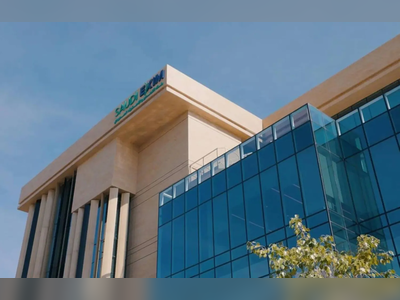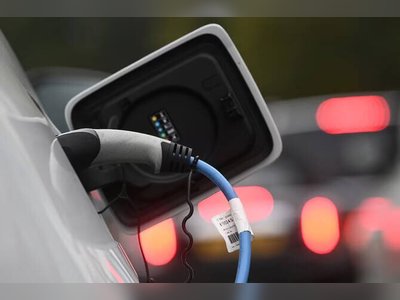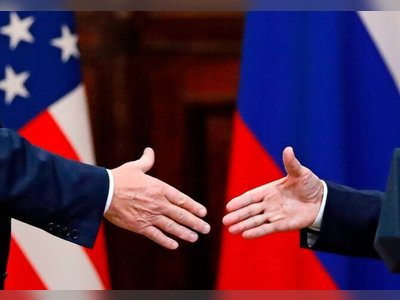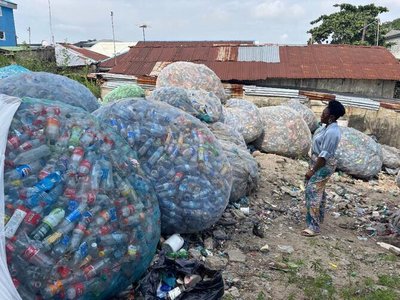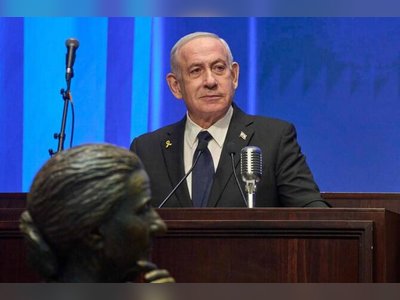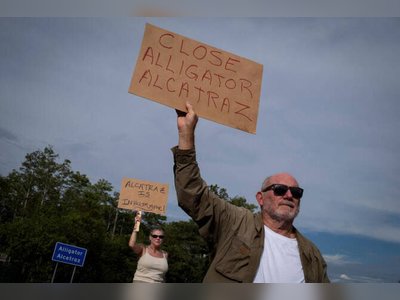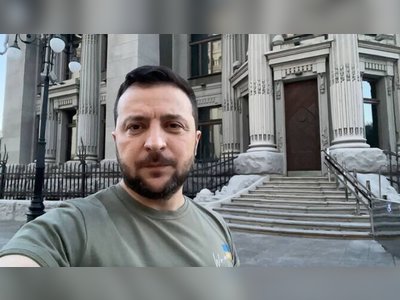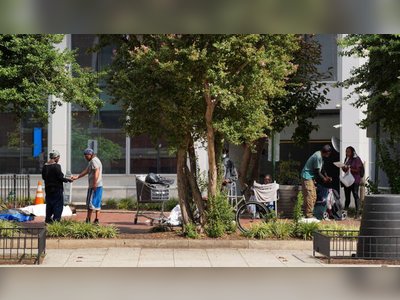
Washington Residents Concerned Over Crime, Skeptical of Trump's Federal Takeover
Residents express mixed feelings about President's decision to take control of US capital, citing both safety concerns and skepticism over the effectiveness of federal intervention.
In Washington, just a 15-minute walk from the White House, the streets bear witness to the city's ongoing battle with crime.
The fatal shooting of Tymark Wells, 33, on Monday marked the 100th murder in the year so far in the capital.
This incident came hours after President Donald Trump announced his plan for a federal takeover of Washington, which he described as 'overrun by crime', despite official data showing a recent decrease in violence.
Residents like Tony and Mike, who spoke to AFP early Tuesday near the scene of the shooting, expressed deep concern over the safety of their city.
'It's sickening,' Tony said.
'It's not safe anymore.' Mike agreed, adding that the city does need change and help but questioned whether federal intervention was the solution, as he opposed the deployment of National Guards.
The skepticism is widespread among residents who have witnessed the issue of crime in their neighborhoods for years.
They described the local street corners as 'open air markets' with 'all the drugs you want', and even pointed out that needles are often found in the flowerbeds near churches.
Lauren, a resident of a nearby building, referred to the area as the 'wild West,' highlighting the desensitization residents feel due to prolonged exposure to crime.
Trump's announcement of his DC plan emphasized concerns about lawlessness in the city.
However, the Department of Justice reported in January that violent crime in Washington had hit its lowest level in 30 years.
The high number of homicides in the city has not changed this reality; it peaked at 274 in 2023 but fell to 187 last year, remaining one of the highest per capita homicide rates nationwide.
Another point of contention was the presence of homeless people in the city.
Ace, a 16-year-old who walks her dog through these streets, shared concerns about break-ins by the homeless on cars, adding to the feeling of insecurity among residents.
In response to Trump's call for action, around 850 federal agents were deployed to Washington on Monday, making 23 arrests according to White House Press Secretary Karoline Leavitt.
Terry Cole, head of the DEA tasked with leading this intervention, promised an increase in patrolling with a combined effort from both federal agents and local police.
The city's Democratic Mayor Muriel Bowser, however, criticized this approach as 'the wrong way to do it', pointing out that federal agents are not trained for patrol work.
Residents also voiced concerns about the lack of police presence and questioned whether Trump's 'draconian approach' could lead to positive outcomes.
Across the street from where Monday's shooting took place, a small memorial was erected in honor of Turell Delonte, 30, who was shot dead by police at that location last year due to suspected drug trafficking.
The complex issues facing Washington extend beyond its crime rate; they also encompass residents' skepticism over how best to address these problems.
As the debate around Trump's federal takeover unfolds, it remains to be seen whether this intervention will bring about meaningful change or merely serve as a political statement in an already fraught national context.
The fatal shooting of Tymark Wells, 33, on Monday marked the 100th murder in the year so far in the capital.
This incident came hours after President Donald Trump announced his plan for a federal takeover of Washington, which he described as 'overrun by crime', despite official data showing a recent decrease in violence.
Residents like Tony and Mike, who spoke to AFP early Tuesday near the scene of the shooting, expressed deep concern over the safety of their city.
'It's sickening,' Tony said.
'It's not safe anymore.' Mike agreed, adding that the city does need change and help but questioned whether federal intervention was the solution, as he opposed the deployment of National Guards.
The skepticism is widespread among residents who have witnessed the issue of crime in their neighborhoods for years.
They described the local street corners as 'open air markets' with 'all the drugs you want', and even pointed out that needles are often found in the flowerbeds near churches.
Lauren, a resident of a nearby building, referred to the area as the 'wild West,' highlighting the desensitization residents feel due to prolonged exposure to crime.
Trump's announcement of his DC plan emphasized concerns about lawlessness in the city.
However, the Department of Justice reported in January that violent crime in Washington had hit its lowest level in 30 years.
The high number of homicides in the city has not changed this reality; it peaked at 274 in 2023 but fell to 187 last year, remaining one of the highest per capita homicide rates nationwide.
Another point of contention was the presence of homeless people in the city.
Ace, a 16-year-old who walks her dog through these streets, shared concerns about break-ins by the homeless on cars, adding to the feeling of insecurity among residents.
In response to Trump's call for action, around 850 federal agents were deployed to Washington on Monday, making 23 arrests according to White House Press Secretary Karoline Leavitt.
Terry Cole, head of the DEA tasked with leading this intervention, promised an increase in patrolling with a combined effort from both federal agents and local police.
The city's Democratic Mayor Muriel Bowser, however, criticized this approach as 'the wrong way to do it', pointing out that federal agents are not trained for patrol work.
Residents also voiced concerns about the lack of police presence and questioned whether Trump's 'draconian approach' could lead to positive outcomes.
Across the street from where Monday's shooting took place, a small memorial was erected in honor of Turell Delonte, 30, who was shot dead by police at that location last year due to suspected drug trafficking.
The complex issues facing Washington extend beyond its crime rate; they also encompass residents' skepticism over how best to address these problems.
As the debate around Trump's federal takeover unfolds, it remains to be seen whether this intervention will bring about meaningful change or merely serve as a political statement in an already fraught national context.

